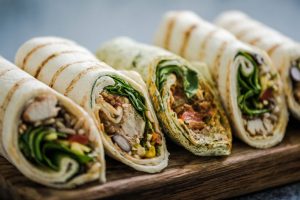The pandemic brought with it a wave of redundancies and business closures – particularly in non-essential retail – meaning many consumers have had their incomes severely reduced.
“The pandemic and the ripple effect of economic hardship have caused considerable changes in the way consumers are behaving and valuing products,” says Phil Sanders, out-of-home commercial director at Britvic, owner of Robinsons and Pepsi. “This has altered traditional shopping missions, purchases and overall basket spend, with many people now more mindful about their spending.”
Tight budgets
The independent sector is perfectly placed to support shoppers as they navigate their new economic circumstances, especially as more and more people are switching to their local corner shop instead of a supermarket. Offering a range of value products, including price-marked packs, is one way retailers can support shoppers looking to make their money go further.
Parminder Walia, category development manager for Tetley, says: “As household budgets tighten, value for money will become increasingly important to shoppers and this is where price-marked packs can be highly beneficial. Cash-conscious shoppers like to know they are not paying over the odds for something they want and the reassurance they get from seeing clear pricing on pack will remain with them when considering where to shop in the future.”
Everyday value
Walia says retailers should focus on stocking price-marked packs across high-volume everyday essentials, especially with 82% of shoppers actively look to buy price-marked packs as part of their weekly shop, according to research firm Lumina Intelligence. Within the black everyday tea segment, she says, Tetley 80s price-marked packs are the top sellers with a volume share of almost 14%. However, within the impulse market Tetley decaf “dominates sales”, with Tetley decaf in 40s and 80s packs the top-selling price-marked packs.
Frozen food categories became staple products last year as shoppers searched for ways to create easy meals while in lockdown. Paula Wyatt, head of marketing for pizza at Dr Oetker, says the frozen pizza segment is growing at 10% year on year in the convenience channel. “Price-marked packs play a key role when it comes to frozen pizza, with the total price-marked frozen pizza market valued at £20.8m,”
She says. “Chicago Town is the biggest brand in the price-marked frozen pizza market, with a total value of £14.6m and growing by 14%, making it extremely important to the category.” Shah Khan, senior marketing manager at frozen potato products brand Aviko, says its price-marked range offers shoppers “quality, special recipes at a competitive price”, adding that retailers can make up to 44% profit-on-return on the range. Products include Supercrunch Chips (£1.49), Bite-sized Hash Browns (£1) and Herb Diced Potatoes (£1).
Affordable luxury
There is an argument, however, that price-marked packs can also be deployed across more-premium products. Stocking a price-marked pack option within these categories can, according to Helen Boulter, multi-sector sales controller at Taylors of Harrogate, “help to overcome the perception that convenience stores are more expensive than supermarkets”.
As we gear up for summer and lockdown restrictions ease, shoppers will be flocking to their local convenience stores to stock up on picnic and barbecue essentials, including premium alcohol. But many still want to save their pennies while shopping for on-trend products, such as ready-to-drink cocktails.
Ben Anderson, marketing director at Funkin Cocktails, says this format is generally seen to be an “affordable luxury” and by offering a price-marked pack (PMP), retailers can “drive trial and repeat purchase if working with popular products and brands”. Funkin says its ready-to-drink Nitro Cocktail range offers PMPs in Passion Fruit Martini, Pina Colada and Strawberry Daiquiri, which it says are “perfect for the summer and all year round”.
Store staples
Shoppers will also be looking for value when shopping for crisps, another outdoor dining essential and a staple category of the convenience sector. Price-marked packs have been the “growth engine of the crisps and savoury snacks category for the past few years, but accelerated in 2020”, says Matt Goddard, wholesale trading director at PepsiCo, owner of Walkers crisps. “They were the number one contributor for growth last year – up by 16% – and this does not seem to be letting up within symbols and independents.”
Matt Smith, marketing director for Tayto Group, says about 80% of savoury snacks sold in symbols and independents are PMPs, so they “should be the main focus for independent retailers”. He says: “The success of price-marked packs is borne out by their share of savoury snack sales in symbols and independents.
“Over the past three years, savoury snack price-marked pack sales have grown from 70% to 80%, showing they are essential for the independent retailer at key price-points – entry (30p), mid (39p) and sharing (£1). Entry and £1 price-points have performed particularly well, growing faster than the market, with 30p price-marked packs up 83% and £1 price-marked packs up 20%. Products such as Golden Wonder’s Spicy Bikers are performing well at both price-points due to great consumer value as well as strong margins for retailers.”
Size matters
Traditionally, the convenience sector champions single packs and impulse snacking formats, but Goddard argues that retailers should expand their savoury snacking range to include more sharing and multi-pack formats, especially with a price-mark. He says 90% of sharing crisps and snacks purchases do not occur in the convenience market, so “independents are missing out on this opportunity”.
To reflect this, PepsiCo launched a new range of price-marked sharing and multi-packs for its Walkers brand, including two £1.65 price-marked multi-packs – Walkers Variety Crisps six-pack and Quavers Cheese six-pack – and three sharing bags – Sensations Thai Sweet Chilli (170g), Doritos Tangy Cheese (200g) and Doritos Chilli Heatwave (200g).
The confectionery category is also seeing a shift towards sharing formats. Claire James, trade marketing manager for Haribo, says the pandemic has seen “single-eat” and “tuc- shop” formats decline the most, while price-marked sharing bags have grown. She says: “Within symbols and the independent channel, the top 20 price-marked bags sell five times as many bags as their non-price marked equivalents. Combine this sales opportunity with our top sellers and retailers have a very exciting sales opportunity and a range of products that should be core to the store.”
Victoria Fell, fruit confections portfolio director at Mars Wrigley, says that within the mints and gums category, larger bottles are “set to be one of the bestselling formats of the year”. She says: “Perfect for sharing, keeping in the car or at your desk, the growth of bottle sales reflects the importance of convenient on-the-go enjoyment to fit in with consumers’ busy lifestyles. Gum bottles will be driving the growth in 2021 with 2% projected growth, so we recommend stocking them alongside core single packs.”
Format growth
Within soft drinks, another staple convenience store category, price-marked packs account for more than 60% of total soft drinks sales and, according to Simon Gray, founder and managing director at Boost Drinks, are a “great way of communicating value and quality to the consumer”. He says that despite lockdown restrictions easing, shoppers are still reducing the amount of time they spend in-store; since the start of the pandemic, 50% of retailers have found they have less time to articulate deals and price-points to shoppers, and as a result 43% of retailers will offer more price-marked packs.
In a similar vein to crisps and confectionery, soft drinks have seen growth of larger, drink-later formats, which Matt Gouldsmith, channel director for wholesale at Suntory Beverage & Food, owner of Lucozade and Ribena, says are growing by 8%, with multi-packs up by 9%. “Our portfolio replicates this, as we have seen strong growth of 9% in Lucozade Energy’s and 10% in Ribena’s drink-later portfolios. In fact, the top three one-litre Lucozade Energy lines represent 22% of the brand’s total sales, meaning it is increasingly important retailers have a larger-format offering in-store for this demand, which includes price-marked packs.”
By Éilis Cronin
 Talking Retail Grocery and product news for independent retailers
Talking Retail Grocery and product news for independent retailers






